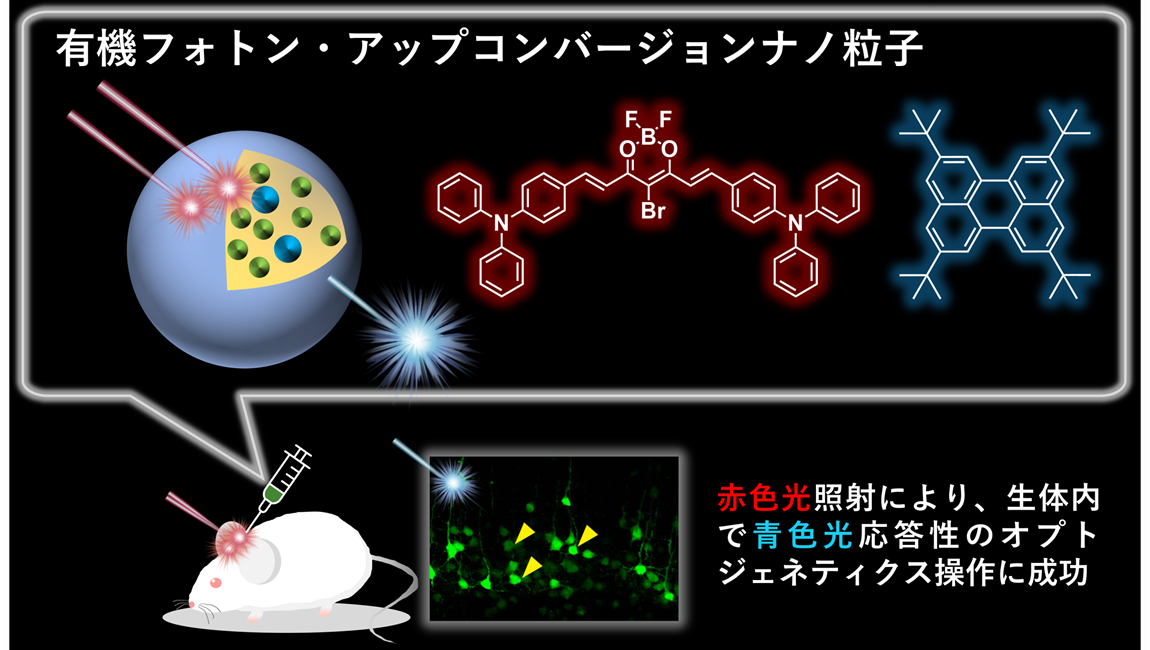DATE2024.09.27 #Press Releases
Successful Optical Manipulation of Neurons with Organic Photon Upconversion Particles
—An important step toward the control of neuronal activity in vivo by light—
Summary
Optogenetics, or photogenetics, is a technology that uses light-activated proteins to control neurons and has contributed significantly to the development of neuroscience. Blue light with a wavelength of 500 nm or less is generally used to activate photoresponsive proteins. However, blue light is strongly scattered and absorbed by skin and in vivo substances, so an optical fiber must be inserted to deliver blue light into the body, which may cause tissue damage and functional impairment.
In this study, a research group led by Masanori Uji, a graduate student, and Nobuhiro Yanai, an associate professor (currently a professor at the School of Science, The University of Tokyo) at the Graduate School of Engineering, Kyushu University, in collaboration with Professor Itsuki Ajioka at Tokyo Medical and Dental University, Dr. Chikako Hara-Miyauchi at Kanagawa Prefectural Institute of Industrial Technology, Dr. Junpei Kondo (then a graduate student), Professor Nobuo Kimizuka at the Graduate School of Engineering, Kyushu University, and others have collaborated to develop photon up-conversion (UC) nanoparticles that can convert red and near-infrared light, which is highly permeable to living organisms, into blue light in vivo, and have succeeded in photo-manipulating nerve cells in vivo.
In this study, the conversion efficiency from red and near-infrared light to blue light was updated by more than a factor of 2 through the development of novel organic sensitizer molecules. In addition, while conventional UC materials contain heavy metals such as osmium, which are a concern for biotoxicity, the UC material developed in this study is composed only of organic molecules and does not contain heavy metals. By administering organic UC nanoparticles subcutaneously to mice and irradiating them with red light from outside the body, we have successfully manipulated blue light responsive optogenetics in vivo. This achievement enables minimally invasive optical manipulation of neural activity in vivo, and is expected to lead to the development of optogenetics in the life and medical fields.
The research results were published online in Wiley's international journal Advanced Materials on September 23, 2024 (local time).

Figure:Red light is converted to blue light in vivo, inducing the expression of fluorescent proteins that respond to blue light.
Links:Kyushu University, Tokyo Medical and Dental University, Kanagawa Prefectural Institute of Industrial Technology (in Japanese)
Journal
-
Journal name Advanced MaterialsTitle of paper


